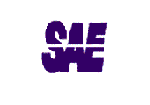PHP Generator family updated to version 9.12
Dec 15, 2009
| Prev | Next |
SQL Maestro Group is happy to announce the release of PHP Generator 9.12, a GUI frontend that allows you to generate high-quality PHP scripts for the selected tables, views and queries for the further working with these objects through the web. There are versions for MySQL, MS SQL Server, PostgreSQL, Oracle, SQLite, Firebird, DB2, SQL Anywhere and MaxDB.
Starting with this version PHP Generator comes in Freeware and Professional editions. Also now it is possible to see all the software features in action on the demo website.
Top 10 new features:
- Support for updatable SQL queries
- Master-detail presentations
- Event-driven content management
- Client-side data validation
- Custom pagination (display partitioning)
- Data export to PDF, XML, CVS, Excel and Word
- Support for hard-coded, table-based, and database server user authentication
- Record-level security
- Color schemes
- Multi-language support
This version also introduces support for both SSH-1 and SSH-2 protocols (whereas all the previous versions supported only SSH-1).
In addition to this, several bugs have been fixed and some other minor improvements and corrections have been made. For more information about a specific tool see the appropriate page:
- PHP Generator for MySQL
- MS SQL PHP Generator
- PostgreSQL PHP Generator
- Oracle PHP Generator
- SQLite PHP Generator
- Firebird PHP Generator
- DB2 PHP Generator
- ASA PHP Generator
- MaxDB PHP Generator
| Prev | Next |




